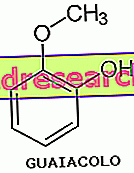Related articles: Hyperkalemia
Definition
Hyperkalemia is defined as a serum potassium (K) concentration equal to or greater than 5.5 mmol / L. This condition is caused by excessive reserves of this element in the body (due to increased intake or reduced elimination) or by an abnormal displacement of the same outside the cells. The causes can be exogenous or endogenous. In any case, the alteration of potassium homeostasis is potentially lethal and requires immediate intervention.
At the same time, many factors can contribute to causing hyperkalemia, including a greater dietary intake of potassium, the use of some drugs and the reduction of renal function. Hyperkalemia can also occur in metabolic acidosis and diabetic ketoacidosis.
Hyperkalaemia may also depend on an increased tissue catabolism, as happens in the case of soft tissue haemorrhages or gastrointestinal tract, acute intravascular hemolysis, tissue necrosis and tumor lysis syndrome. Hyperkalemia from excess total body potassium is common in oliguric states (especially in acute renal failure), rhabdomyolysis, burns and adrenal insufficiency. The increase in potassium can also occur due to iatrogenic causes, such as massive red blood cell transfusions and administration of drugs containing potassium salts (eg penicillin G or potassium phosphate).
The clinical manifestations of hyperkalemia are generally neuromuscular, resulting in muscle weakness, flaccid paralysis and cardiac toxicity. This latter event, if severe, can degenerate into ventricular fibrillation or asystole.
Possible Causes * of Hyperkalemia
- Metabolic acidosis
- Diabetic ketoacidosis
- Diabetes
- dyslipidemia
- Yellow fever
- Heart failure
- Kidney failure
- Adrenal insufficiency
- Malignant hyperthermia
- Leukemia
- Addison's disease
- Nephritis
- Heart failure
- Burns



